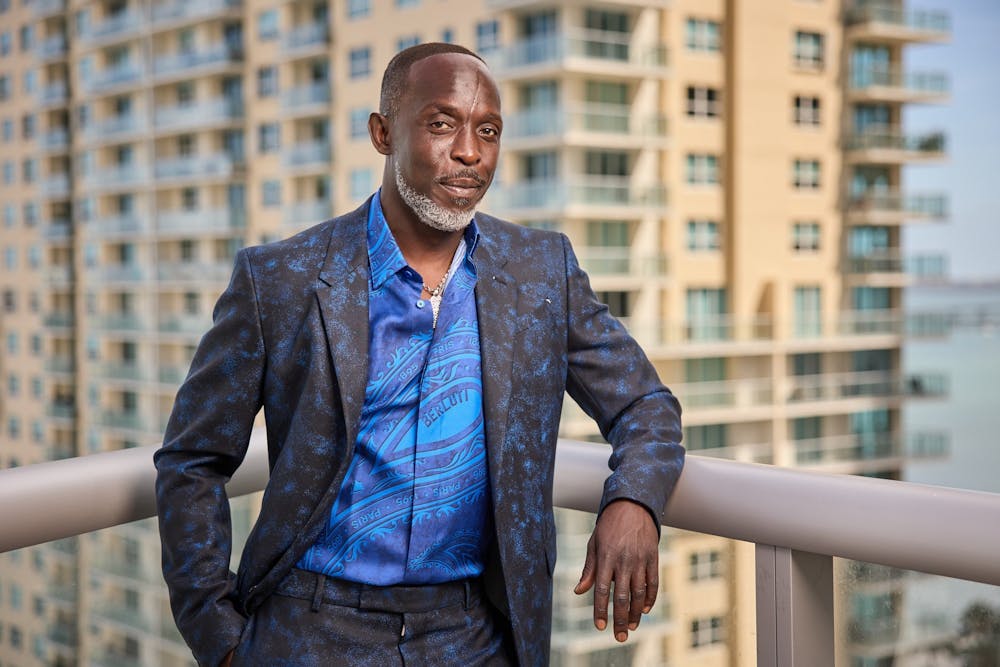Michael K. Williams, an acclaimed actor that brought new life to television with his darkly realistic performances, is dead at age 54, presumably from a drug overdose.
The first thing I thought of when I heard the news was Williams once said, "If I were typecast I would be in jail or dead. But I'm here. I got out."
The quote comes from a short film he did for HBO and the Atlantic in 2018, where he acted out four different portrayals of himself. In it, he reflects on his acting career and whether or not he is typecast, which means an actor only plays certain roles, like villains or comedic characters, regardless of one's ability.
The different versions of himself say he's always going to be seen as a gangster due to his roles, his race and the realities of the entertainment industry. One of the four versions said, "You always gonna play some version of Mike. Gangster Mike. Old timey gangster Mike. Southern Gangster Mike."
Williams gained recognition for his breakout role of Omar Little in the show "The Wire," a role that cemented him as one of the best television actors. He was praised for the realism and subtlety he brought to the screen. The role centered around the character's conflict between a strict moral code and the drug trade taking place around him. It wasn't an easy one for Williams to play.
"I suffered from a huge identity crisis," Williams said in an interview with The New Jersey Star-Ledger. "But when I look at the characters, I got to exorcise my demons, a lot. In the end, I was more comfortable with Omar’s skin than my own. That was a problem."
He would eventually get clean with the help of a ministry near his residence, and his career would continue to flourish. He got roles in shows and films such as Boardwalk Empire as Chalky White, a Black gangster in the prohibition era, and even gave a powerful performance portraying the father of one of the Central Park Five in the Netflix series When They See Us.
The last role he would make headlines playing was in Lovecraft Country, a horror themed show centering on the atrocities Black people faced in America throughout the 20th century. The show had its share of criticism for focusing too much on Black trauma, but regardless, Williams' role had wowed critics again. He was even nominated for an Emmy for his performance.
It would open up old wounds. After filming the first season of the show, Williams relapsed into his drug abuse and sought therapy for the first time.
"That show woke up a lot of demons. A lot. It cut me really close to the bone," Williams said in an interview with Men's Health. "You know, as people of color in Hollywood, entertainment, a lot of times we don’t pay attention to the fact that we sell trauma. Some of our most wanting work is rooted—most of the time—in pain and trauma."
I keep watching the video, seeing four versions of Williams speak. One said, "I picked these roles. Me. I made this path for myself." Another said, "Did you? Or did they choose you? You think we would be doing what we doing if we had a choice?"
Michael K. Williams led a life of pain. Pain he translated beautifully on screen. It was a kind of pain so understood by him that it won him countless awards and cemented his name in television history. While he was praised as Omar Little, as Chalky White, as Bobby McCray and all these other roles centering Black trauma and Black violence, it ate away at him.
In the video, he said, "If I were typecast I'd be in jail or dead. But I'm here. I got out. Got myself out."
But I don't think he believed himself when he said it. The camera shows all the characters he played are gone, and all that's left is Mike. And now, Mike is gone too. May he rest in peace.






